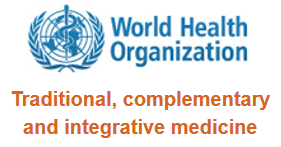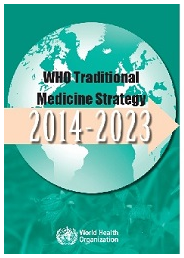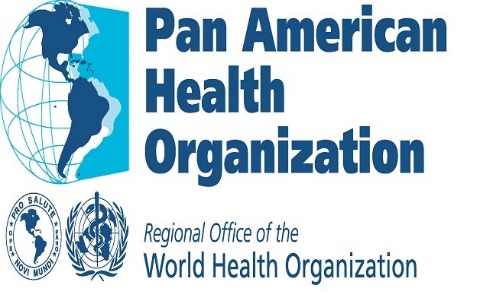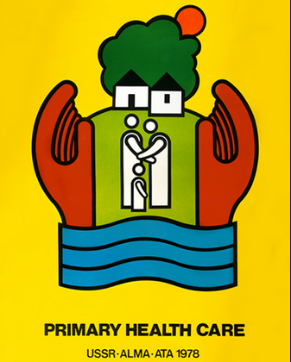Action alert: Respond by April 23 to help put “integrative” in new WHO Declaration on Primary Care

Editor’s note: This analysis article is not edited and the authors are solely responsible for the content. The views and opinions expressed in this article are those of the authors and do not necessarily reflect the official policy or position of Integrative Practitioner.
I received today, April 18, 2018, an invitation from colleagues with the Pan American Health Organization (PAHO) to share an opportunity for you to help expand the presence and impact of the integrative model globally. This is, literally, a once-in-40 years oppoprtunity.
The WHO – for which PAHO is the Western hemisphere affiliate – has a new Draft Declaration on Primary Health Care. PAHO is urging interested parties to suggest methods for including traditional, complementary, and integrative medicine in the new statement. You can comment here. The comment period is open only through April 23, 2018.
 The notice from PAHO shared that the context for the new Declaraton is the 40th anniversary of the 1978 Alma-Ata Declaration that promoted the importance of primary care for all. WHO is organizing the “Second International Conference on Primary Health Care: Achieving Universal Health Coverage and the Sustainable Development Goals” where the final declaration on primary care will be delivered. The conference will be held in Astana, Kazakhstan, 25-26 October 2018.
The notice from PAHO shared that the context for the new Declaraton is the 40th anniversary of the 1978 Alma-Ata Declaration that promoted the importance of primary care for all. WHO is organizing the “Second International Conference on Primary Health Care: Achieving Universal Health Coverage and the Sustainable Development Goals” where the final declaration on primary care will be delivered. The conference will be held in Astana, Kazakhstan, 25-26 October 2018.
The WHO’s draft declaration, according to PAHO consultant Daniel Gallego-Perez, MD, DrPH (cand) “would be updating the world´s commitment to Primary Health Care, first outlined in Alma-Ata. Among several things, we would like that the declaration explicitly mentions the importance of traditional, complementary and integrative medicine for Primary Health Care. Therefore, we need the TCIM community to step up and advocate it by sending comments using the online tool.”
Globally, integrative care is advanced most by WHO, and by PAHO in this hemisphere. The most significant tool to date is their Traditional Medicine Strategy 2014-2023. As reported here in Integrative Practitioner, the integrative health and medicine community and WHO leaders have intentionally been knitted more closely together over recent years. This led WHO to change the name of their initiative from “traditional” to “traditional, complementary and integrative.”
 The WHO’s draft declaration begins with an admission that the global community has fallen far short on the Alma-Ata goals: “Numerous summits, global, regional, and national conferences have reiterated those commitments; however, the implementation of primary health care has been insufficient and uneven among and within countries. As a result, the global community has yet to deliver health for all.”
The WHO’s draft declaration begins with an admission that the global community has fallen far short on the Alma-Ata goals: “Numerous summits, global, regional, and national conferences have reiterated those commitments; however, the implementation of primary health care has been insufficient and uneven among and within countries. As a result, the global community has yet to deliver health for all.”
The draft then announces the following core charges:
- Primary health care is essential to improve health:
- Primary health care is essential to the success of and sustainability of health systems:
- Primary health care is essential to achieving universal health coverage and Sustainable Development
 Your comments on these are solicited. These are followed by recommendations to governments, to people, and to the international non-governmental organization (NGO) community. These are particularly ripe for your commentary on the inclusion of, and roles for, traditional, complementary and integrative strtegies.
Your comments on these are solicited. These are followed by recommendations to governments, to people, and to the international non-governmental organization (NGO) community. These are particularly ripe for your commentary on the inclusion of, and roles for, traditional, complementary and integrative strtegies.
If you are interested in seeing examples of useful suggestions from the integrative health community, please check the Stuttgart Integrative Health and Medicine Declaration and the “The Berlin Agreement: Self-Responsibility and Social Action in Practicing and Fostering Integrative Medicine and Health Globally.” Each includes ideas that can fit into the framework of the proposed declaration and the response outline in the comment form.
Here is hoping that some of you will take this rare opportunity to help shape what stands to be one of the global healthcare community’s most significant and enduring aspirational documents for the coming decades of our struggle to bring health and sustainability to the planet. Make a difference!




















SHARE